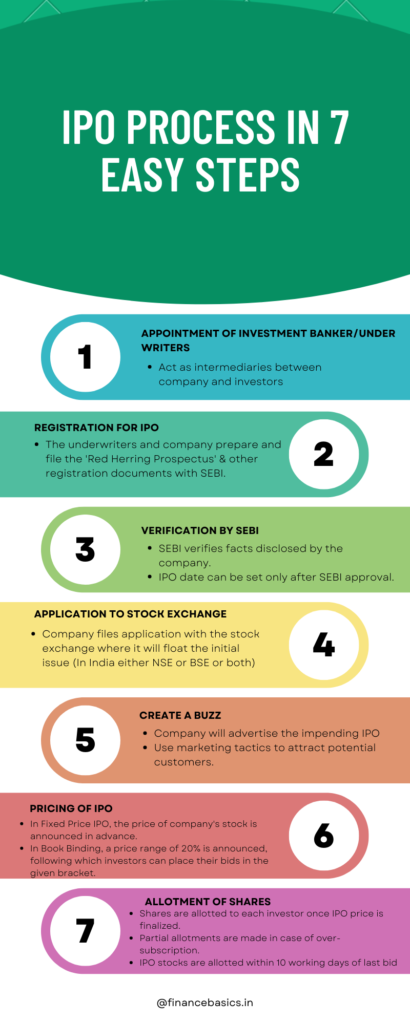An Initial Public Offering (IPO) is a process of offering shares of a private company to the general public for the first time. Companies can raise equity capital with the help of an IPO by issuing new shares to the public in exchange for cash.
Steps in an IPO process in India
IPO process in India explained in 7 quick steps

Advantages of an IPO
- The company gets access to investments from the entire general public. This helps in easier acquisition deals.
- It also increases the company’s exposure, prestige and social image. Additionally it helps to increase sales and profitability.
- IPO’s can give a lower cost of capital for both equity and debt.
- The existing stakeholders, private equity firms get an opportunity to exit their investment with a potentially large amount of profits.
Disadvantages of an IPO
- There is increased regulatory compliance and disclosure requirements, as public companies have to file their financial statements with Securities Exchange Board of India (SEBI).
- The company founders could experience a loss of control or dilution of control after an IPO.
- IPO’s are expensive. There are significant legal, accounting and marketing costs which a company has to incur and which are ongoing in nature.
- Increased time, effort and management attention is required for reporting.
Image credits: Image by Gray StudioPro on Freepik



